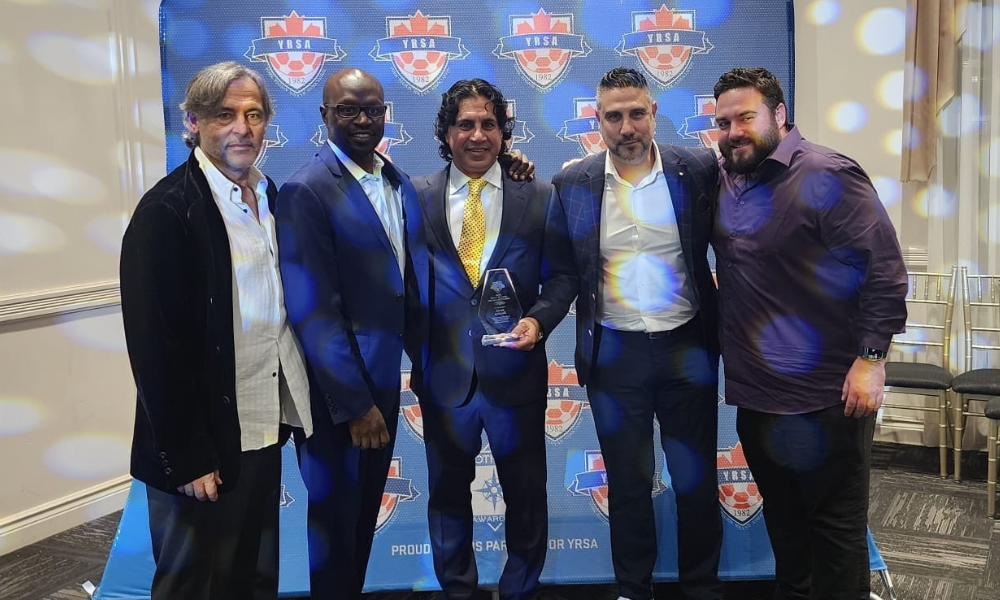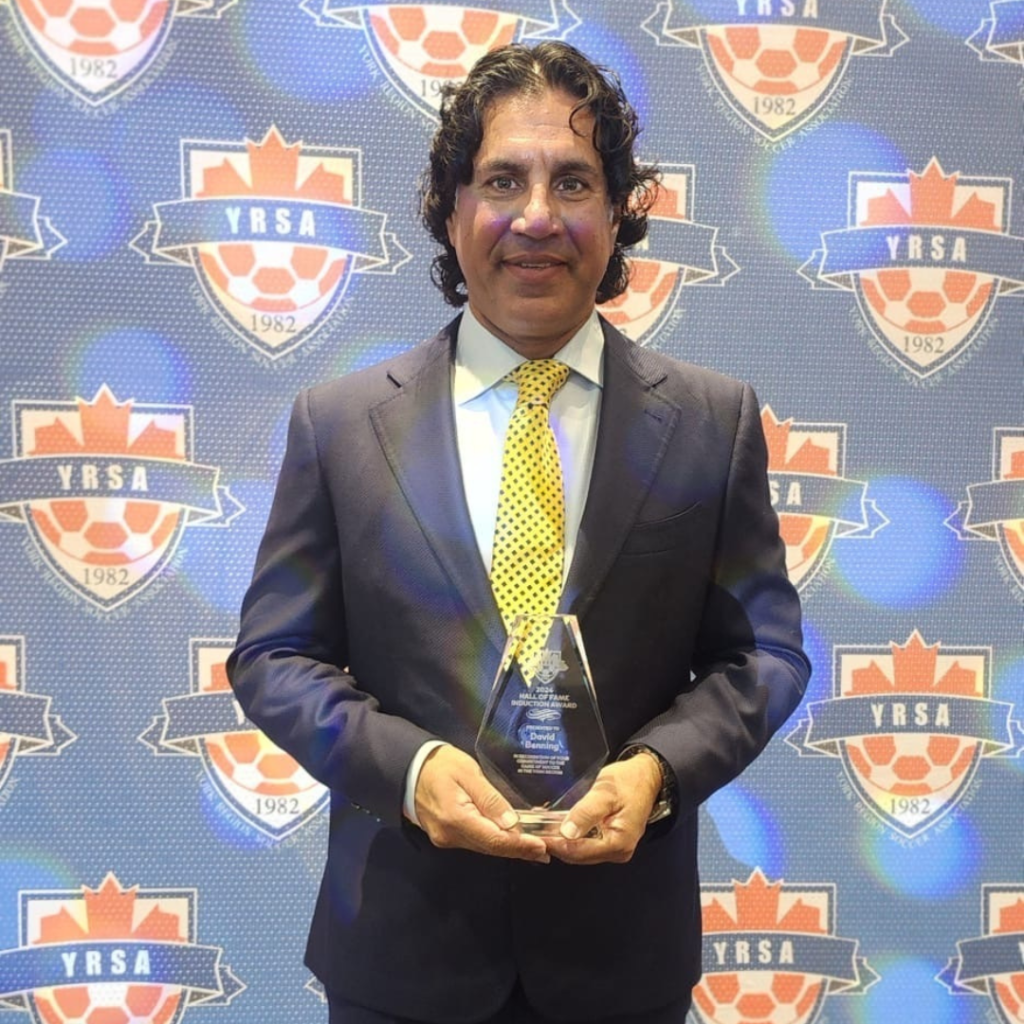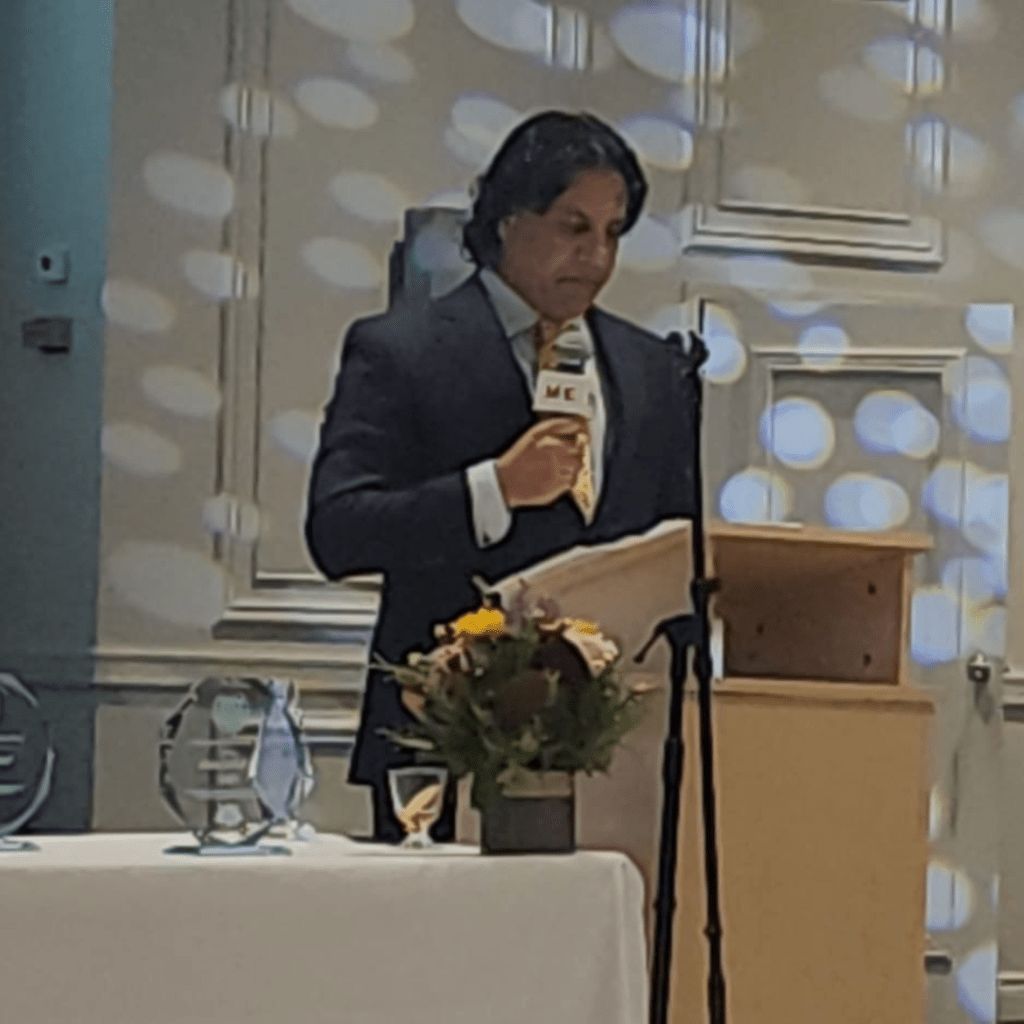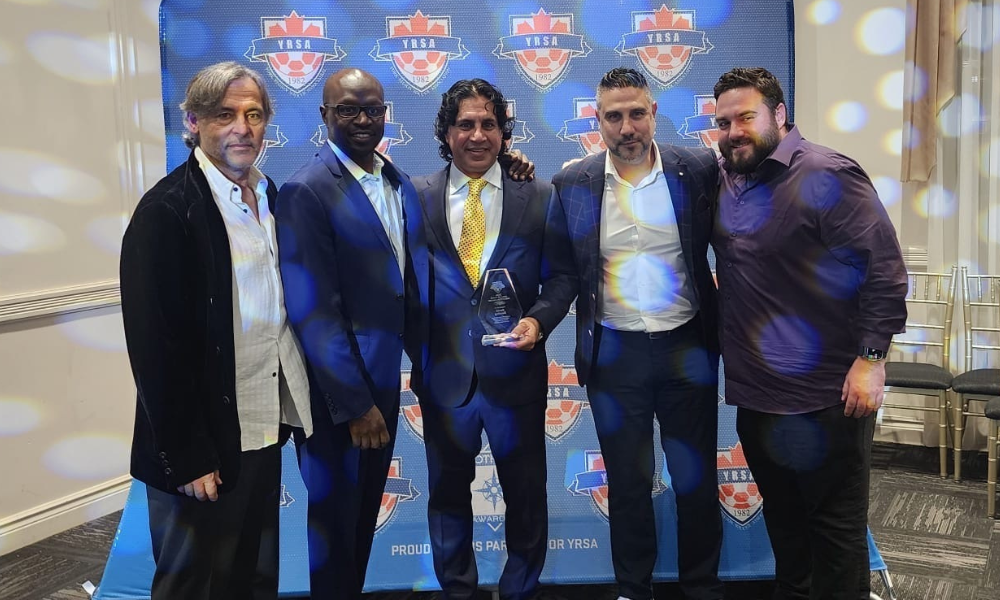A Lifetime in Soccer: David Benning on Building a Legacy, Shaping Youth, and His Induction into the York Region Soccer Hall of Fame

MILTON, ON – On Friday, November 8th, a prominent figure in the Milton soccer community was honoured for his outstanding contributions to the sport. David Benning, Director of Soccer Operations at Milton Magic FC, was inducted into the York Region Soccer Association Hall of Fame, recognizing a remarkable 32-year career dedicated to advancing youth soccer across York Region and beyond. Renowned for his transformative impact on local soccer culture, David’s legacy continues to shape the game and inspire future generations.
Ahead of the ceremony, we had the opportunity to sit down with David to discuss his induction, the journey that led him here, his coaching philosophy, and his vision for the future of Milton Magic FC.
Reflecting on his unexpected journey:
“One thing people should know about my coaching career and development into a director of soccer operations role is that it was quite serendipitous. After returning home, I was seeking a coaching opportunity with the Ontario Provincial teams following my playing career overseas and at George Washington University to fill the time I had before using my degree. Having represented Ontario and Canada during my playing days, I was offered an assistant coach role and had the privilege of coaching the Canada Games team in ’93. Interestingly, Milton Magic FC’s President Phil Ionadi and Assistant Coach of the B2010 Joe Mattacchione were players on that team. It’s fascinating how relationships built over time can resurface in unexpected ways.
“After a practice at Etobicoke Centennial Stadium, a former teammate, Carmine Isacco, now the York University Men’s Coach, introduced me to Pino Fufaro. At the time, Pino was President and coaching a Glen Shields B1981 team in Vaughan and invited me to conduct some training sessions. My involvement with the 1981 Boys team led to coaching two additional age groups. Recognizing the success on the field, with a desire for all the teams to be aligned, Pino and the board offered me the position of the first technical director of any youth club in York Region, Ontario, or Canada. His visionary approach, which inadvertently initiated an industry, was truly groundbreaking.”
On the significance of becoming the first technical director and its impact on the industry:
“I embraced this new role with utmost seriousness, determined to justify Pino’s faith in me and to serve the club with dedication. This opportunity revolutionized the operational structure of youth soccer clubs. Today, every successful club employs a technical director, which has led to the establishment of executive directors, office operations, administrators, and even paid coaching positions. I take immense pride in the progress we have made, despite the challenges faced along the way. Many aspects that are now standard in our industry, such as licensed coaches, club branding, a defined game model, training philosophies, curriculum, and player standards, were hard-fought achievements. Simple gestures like greeting players with a handshake were unheard of in the nineties. The ability to work in an office and accomplish tasks that volunteer board members couldn’t manage during the day was a significant advancement. While I may be considered a pioneer, I was not alone; many volunteers contributed to these developments. However, being the first to be compensated for this role was a distinct honour.”
On the most influential people and moments in his career:
“John Knox, who eventually became the president of Ontario Soccer, coached me during my youth. He led the National Soccer League All-Stars and is a well-known figure in the soccer community. His influence on me was profound, teaching me how to handle players with empathy and understanding, and how to inspire them to perform their best.
“Ray Clark, from the national team program, also had a significant impact on my coaching career. He demonstrated the proper way to communicate messages and interact with coaches while supporting my growth in becoming a teacher of the game by elevating my understanding of the game to become an instructor across Canada.
“Another key figure was Richard Bate, who was Head of the English FA before becoming the Technical Director for Soccer Canada. For six months, he put me through an intensive program of assignments and homework that taught me more than any formal coaching course could. This one-on-one mentorship elevated my coaching skills to be able to coach at the national and international levels.
“I am also grateful to Holger Osieck, Germany’s assistant coach during their World Cup victory who then became Canada’s Men’s World Cup Coach. He guided me through my licensing, discussed the game with me in great detail offering me his insight and advice before offering me my first role with Soccer Canada as a National Team Coach.
“Lastly, I owe a great deal to the many volunteer coaches I have worked with over the years. Each of them has contributed to my development as a coach and leader, and I am thankful for their influence.”
On his York Region Soccer Association Hall of Fame Induction:
“I was beyond humbled when Aldo Lippa, President of Glen Shields SC, and Mike Pozzulo, a past board member, reached out to me to be the first representative of Glen Shields. Before I had a chance to reflect on the honour, I jokingly asked if I was being forced into retirement! But truly, being recognized for my impact with Glen Shields and the entire region is incredible.”


On reflecting on his career:
“I’ve had some time to reflect since the induction. I’ve been in the sport for 32 years. I’m no longer the young guy trying to change the world, but I’ve become someone who has experienced so much and helped the sport grow. I’ve also had time to reflect on all the people I’ve been able to connect with over the years.
“In the past 10 years of my career, I’ve come to realize that all the championships and wins I chased, while not a waste of time, weren’t the most fulfilling parts of my coaching career. When I hear my name called in the middle of a shopping mall, and someone says, ‘Thanks, coach!’ that’s what makes it all worth it. Often, it’ll be 35 to 40-year-olds who I coached in the past, now introducing me to their families. I’ve even coached some of their kids as well! It’s an unbelievable feeling to see people become successful in their own right, and if I’ve had any influence on them to stay in the game or to be a better person, that’s fantastic.
“Moments like this are the reason I am invested as a coach. One day the players will lace up for the last time and they will not know it’s their last time. When they look back, they will remember more than anything we gave them our time.”
On his coaching philosophy:
“What I came to learn the hard way was that my job was always to bring out the best version of everyone else around me. That has, in my experience, always led to a better culture where everyone tries to bring out the best in each other.
“As time went on, my purpose was really to develop the person before the player because I felt we concentrated too much on the 2% (elite players that would end up being on the national team or provincial) and not enough on the other 98% of the players that were just there to play soccer. I switched it around to spending more time and focus on 98% of the players and the development of the person before the player.
“I came up with acronyms for values for each club on what to instill (presently at Milton Magic FC it’s HEART: humble, effort, accountability, respect, and trust) and those are all values that any family would want in their children.
“It takes a village to raise a child. If we’re part of a child’s journey through life, then we have to also take responsibility and provide some direction for them, partner with the families and the parents, and make sure that their kids are going in the right direction.”
On the vision & future of Milton Magic FC:
“The most important challenge when I first arrived was to change the perception and image of the club within the membership and the town of Milton. I believe we’ve been successful in doing that. We created value for our club through its original programs and have added even more in such a short amount of time. I think there is now a better understanding of the club’s pathway because we clearly communicated it to our members. It all comes back to communication.
“We’re now building our image and changing the way we are viewed in Peel Halton. We’ve begun to transform the club’s culture by bringing in better coaches with proper licenses and implementing a curriculum with a clear purpose for our programs. Each program we create is built on a solid foundation and is linked to the ecosystem within Milton Magic FC. We’re opening doors for players with real direction on the pathway from recreational, to skills development, to competitive, to high performance.
“We’ve also redirected our mission to being a ‘Home For All,’ which is a significant statement. We want to create lifelong soccer experiences for everyone, just like it was for us. We want everyone to have memories of going to tournaments, being with teammates, and developing lifelong friendships. It’s about building an opportunity for people to connect with the community, and for me, a big part of that is bringing back past players, volunteers, and coaches ‘home’ to Milton Magic FC.”
On his advice for aspiring coaches:
“My best advice would be to understand the ‘WHY’ behind your desire to coach. If it’s to chase championships and accolades, you’re in it for the wrong reasons. The true purpose of being a coach is to be involved in the community, to teach values and life skills through sport. It’s about investing the time to develop the necessary skills to keep individuals engaged in the game for life. It’s about passing on knowledge to make someone better than you ever were. Focus on developing the person before the player; in my experience, good people make the best players.”
David Benning’s induction into the York Region Soccer Association Hall of Fame is a fitting tribute to a lifetime of dedication to the sport of soccer. His journey from a serendipitous start to becoming a transformative leader in youth soccer reflects not only his own growth but also the impact he’s had on countless players, coaches, and clubs. David’s legacy goes beyond championships; it’s in the culture he’s shaped within the sport we see today.

